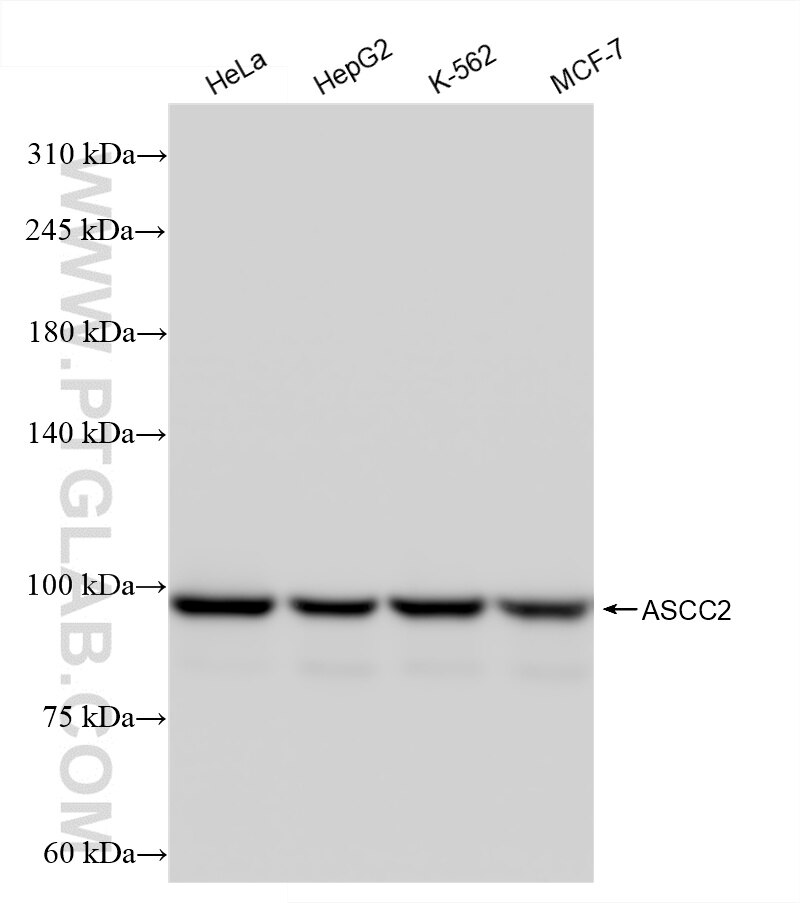Anticorps Recombinant de lapin anti-ASCC2
ASCC2 Recombinant Antibody for WB, ELISA
Hôte / Isotype
Lapin / IgG
Réactivité testée
Humain
Applications
WB, ELISA
Conjugaison
Non conjugué
CloneNo.
250566B11
N° de cat : 86086-2-RR
Synonymes
Galerie de données de validation
Applications testées
| Résultats positifs en WB | cellules HeLa, cellules HepG2, cellules K-562, cellules MCF-7 |
Dilution recommandée
| Application | Dilution |
|---|---|
| Western Blot (WB) | WB : 1:5000-1:50000 |
| It is recommended that this reagent should be titrated in each testing system to obtain optimal results. | |
| Sample-dependent, check data in validation data gallery | |
Informations sur le produit
86086-2-RR cible ASCC2 dans les applications de WB, ELISA et montre une réactivité avec des échantillons Humain
| Réactivité | Humain |
| Hôte / Isotype | Lapin / IgG |
| Clonalité | Recombinant |
| Type | Anticorps |
| Immunogène | ASCC2 Protéine recombinante Ag2100 |
| Nom complet | activating signal cointegrator 1 complex subunit 2 |
| Masse moléculaire calculée | 757 aa, 86 kDa |
| Poids moléculaire observé | 90-100 kDa |
| Numéro d’acquisition GenBank | BC025368 |
| Symbole du gène | ASCC2 |
| Identification du gène (NCBI) | 84164 |
| Conjugaison | Non conjugué |
| Forme | Liquide |
| Méthode de purification | Purification par protéine A |
| Tampon de stockage | PBS with 0.02% sodium azide and 50% glycerol |
| Conditions de stockage | Stocker à -20°C. Stable pendant un an après l'expédition. L'aliquotage n'est pas nécessaire pour le stockage à -20oC Les 20ul contiennent 0,1% de BSA. |
Informations générales
ASCC2, also known as ASC1p100, is a subunit of the activating signal cointegrator 1 complex. ASCC2 plays a role in DNA damage repair as a component of the ASCC complex, recruiting ASCC3 and ALKBH3 to sites of DNA damage by binding to polyubiquitinated proteins that have 'Lys-63'-linked polyubiquitin chains. Additionally, it is part of the ASC-1 complex that enhances NF-kappa-B, SRF, and AP1 transactivation(PMID: 29144457, 12077347).
Protocole
| Product Specific Protocols | |
|---|---|
| WB protocol for ASCC2 antibody 86086-2-RR | Download protocol |
| Standard Protocols | |
|---|---|
| Click here to view our Standard Protocols |


